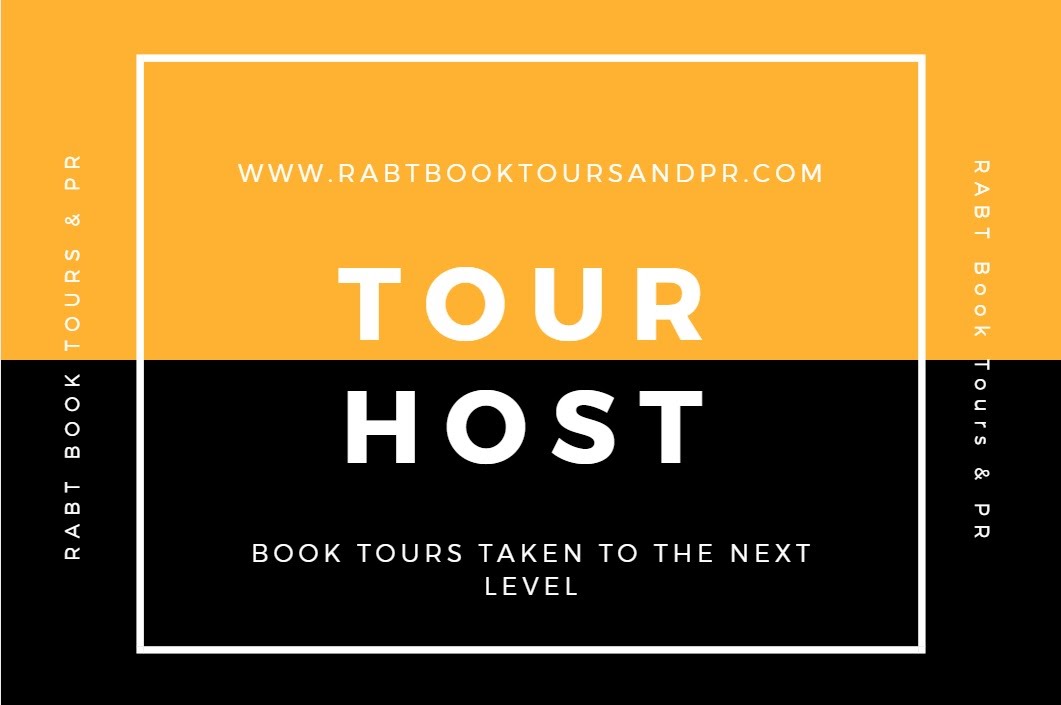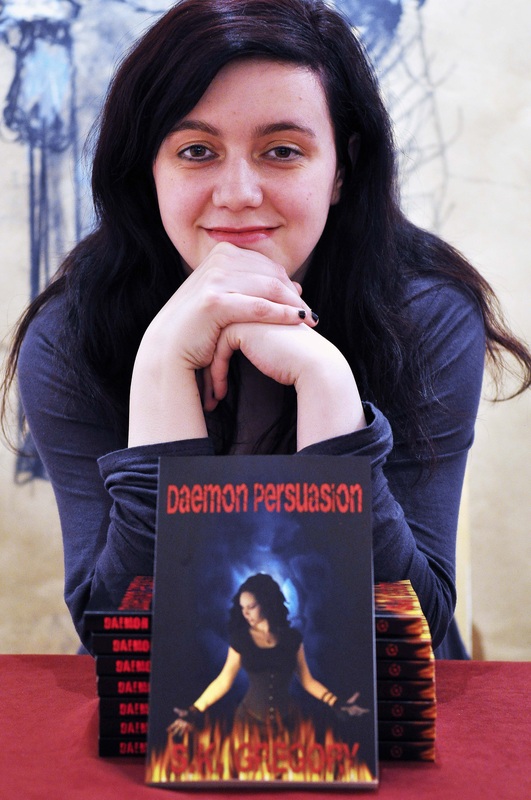|
Content advisory: The following book contains vivid depictions of gore, graphic sexual violence, endless mind games, will induce strangely beautiful feelings of paranoia, and lots of bad things. Really bad things. It's not recommended eating before, during, or after reading this story. Prepare for a one way trip to Hell.
I'm haunted. Not by ghosts, but by a face I can't quite remember. Eyes that shine so brightly each time I see them, are now nothing more than a hazy memory. I'm consumed The thoughts that whisper so quietly inside my mind when I'm sure I have this evil inside of me under control are becoming more persistent. I'm lost. I know where I need to be, but not quite sure if I'll get there. Will she ever show her face to me or will I always only see a blank slate of nothing? There are only a few simple things I know to be true: I'm not a messy man. I'm not a serial killer. I can stop anytime I want to. I am NOT crazy. 1) As a female horror writer what do you bring to the table in terms of what of you write? Unrelenting gore. I don't hold back when I write because I feel like I wouldn't be doing my stories justice. I like to climb into the minds of my readers and jostle them around a bit while they wallow through the blood and horrific details to get to the "point". 2) Do you think female authors are underrepresented in the horror genre? Uh yeah. This is not an easy genre to be in, but I like it because it's who I am and I refuse to sell out and go the easy route. Home is where the horror is. 3) Tell us about your book(s) That's kinda open ended really. None of my books are the same. You won't read the same story twice because I have a lot of stories to tell and each character demands a certain way their story be told and how their legacy, for lack of a better word, is paved. 4) Why is horror writing important to you? Because to me; it's the hard road. 5) Is the future of horror female? I hope so, but I guess we'll have to see. About the Author: Yolanda Olson is an award winning and international bestselling author. Born and raised in Bridgeport, CT where she currently resides, she usually spends her time watching her favorite channel, Investigation Discovery. Occasionally, she takes a break to write books and test the limits of her mind. Also an avid horror movie fan, she likes to incorporate dark elements into the majority of her books. 1) As a female horror writer what do you bring to the table in terms of what you write?
A sense of mystery, a touch of uneasiness, a pinch of suspicion, the sensation that something’s off, although it’s not clear what at first. I want the reader to be intrigued, to want to go deeper into the story and find out what’s really going on. Is the famous writer really a killer? Is the woman a vampire? Is the great old house haunted? I’m fascinated by emotions and how people deal with them, and also by the way our society seems to have “evolved” by destroying the environment. As human beings we are capable of love and destruction – I find that intriguing and worth exploring in writing. 2) Do you think female authors are underrepresented in the horror genre? Quite frankly, yes. I can tell you from the top of my head five male horror writers but when it comes to their female counterparts, I’d have to think for a while. Sure, there are writers who incorporate horror elements in their work, but pure horror? A female Stephen King? Only Anne Rice comes to mind right away, and that’s because of The Vampire Chronicles. This probably means I need to read more female horror writers but to be honest I don’t care much about who writes the story if the story makes me want to keep turning the page. 3) Tell us about your book(s) In October 2017 my short story, The Door, has appeared in Descent into Darkness, a horror anthology, available on Amazon. It contains 20 short stories by 20 indie writers, and they range from the mild to the disturbing. Right now I’m working on a collection of short stories to be published this year. I’ve been writing and collecting them for years and I’m very excited to release them into the world and see what happens. I also have a fantasy novel that needs major rewrites. For years I couldn’t figure out what to do to make it work but I think I’m finally on the right track. One thing is certain, I find short stories a lot easier to write. 4) Why is horror writing important to you? When I started writing I didn’t intend to write horror but that’s what came out on the page. It could have been romance, or a Western, or literary fiction, but it wasn’t. Many times I’ve stared at a story and thought, huh, so this is the way you want to go… The fear, the details, the atmosphere, the tragedy, all of them appeal to me. I love horror. I blame Stephen King for that. If I hadn’t picked up Needful Things all those years ago, who knows what might have happened. 5) Is the future of horror female? Only the future knows Read between the lines.
Nestled away in a farm, surrounded by a dead forest, Amari is about to embark on her greatest adventure, or her worst nightmare. Unknown to Amari the farmhouse that they have moved into holds a sad and dark history and she will need to do everything that she can to protect her family and the dreams they have for their new home. 1) As a female horror writer what do you bring to the table in terms of what of you write? I like to think that I bring back some old school scares. I like building up suspense and really twisting it around towards the ends of my books. As a female horror writer I like to focus more on tripping up my readers psychologically more so than descriptively if that makes sense. 2) Do you think female authors are underrepresented in the horror genre? I don’t think they are underrepresented. I feel that as authors we are responsible for our own representation, male and female, and that female horror authors should seriously up their marketing game. 3) Tell us about your book(s) I have released two books with my third coming out. Ensnared was the first book I wrote, followed closely by Tatum. Ensnared Blurb: Read between the lines. Nestled away in a farm, surrounded by a dead forest, Amari is about to embark on her greatest adventure, or her worst nightmare. Unknown to Amari the farmhouse that they have moved into holds a sad and dark history and she will need to do everything that she can to protect her family and the dreams they have for their new home. Tatum Blurb: Watch your back! Tatum keeps having the strangest nightmares, but fantasy soon meets reality when the haunting woman from her dreams crosses over into her real life. All Tatum wants to know is that she isn’t going insane, but how do you prove your sanity, when you’re the only one seeing her. Strange murders rock Tatum’s quiet neighbourhood. She soon discovers that her nightmares, the deaths and the Skeleton are all connected. 4) Why is horror writing important to you? I enjoy it and it makes me seriously happy so it’s important to me because without it I feel a bit lost. I love sharing my stories with people but I write for me, I write what I like to read and I like delving into the dark recesses of my own mind for a good twist. 5) Is the future of horror female? I think the future of horror is creative – male or female – but that woman should realise they have a lot to offer and shouldn’t be nervous just because the big names are mostly male. About the Author: Hailing from Johannesburg, Southern Africa, Sian B. Claven has enjoyed stories for all her life, whether she was reading them or making them. She has written for as long as she can remember, but Ensnared is the first book she decided to publish. Moving towards writing more for a horror genre, when Sian isn’t thinking of ways to terrify people, she enjoys writing science fiction stories, poetry and rather long and gushy birthday wishes. When she isn’t working on her writing you can find her knitting, scrap booking, reading, or playing Xbox. Sian also reviews for The Blithering Bibliomaniacs and clearly doesn’t know what the words rest and relaxation mean, at least not in the traditional sense. Each tale of The Hauntings of Kingston is a standalone novel that takes place in the enigmatic city of Kingston, Ontario.It's been waiting....When Gillian and her family move into the old house on Harvest Street, it's too good to be true. The rent's dirt cheap, and it's right next door to the University she’s going to be attending. With her recently widowed mother on board, there’s a ready and willing babysitter for her five-year-old daughter Sarah.
Who could ask for anything more? When Gillian’s mother Maureen discovers a family connection to the house they see it as Providence. They’re meant to live here! But then… odd things start to happen. Sarah loves the swing in the backyard and her new friends—twin girls only she can see. The odd becomes foreboding when Nana Maureen can’t sleep in her room. She’s constantly woken up by creaking floors, nightmares of being strangled, and the smell of rotting flesh. The family has always been loving and close, but now the atmosphere between them is tense. Small disagreements explode into rage. What on earth is happening to them? They don't know about the evil that descended upon the house. How, almost a century ago, dashed dreams rose again into a rage— a murderous rage. A rage that still breathes in the very walls of this home. This is how it began and how it will end. At Crawley House. 1) As a female horror writer what do you bring to the table in terms of what of you write? I write supernatural ghost/haunted houses novels. A subtle touch in the writing, creating an eerie setting is essential, an approach which I think is intuitive for a woman. Also as a daughter, sister, mother and grandmother, my perspective in creating female characters is real. It comes through in Crawley House where the main characters are a recently widowed mother, her adult daughter and granddaughter. 2) Do you think female authors are underrepresented in the horror genre? No, I think for the sub-genre of horror, supernatural, there are some very fine and popular women authors. I’d say we outnumber men by a factor of two women to one male.. 3) Tell us about your book(s) I started in this genre with Crawley House, which is a tale where my three main characters end up in a strange city in a house which has a dark history. There is a theme of the past reaching forward to complete circles of emotional events. The past and future are intertwined when the grieving family find that their ancestors owned the house and an evil spirit is bent on revenge. I decided to write a series of stand-alone books where the common thread is that they are based in the area where I live, Kingston, Ontario Canada., My second book Haunted Inn features two young guys who don’t believe in an afterlife but are quite willing to capitalize and become rich exploiting people who are believers. They buy a large old home with the intention of spooking it up, only to find that it is actually haunted. Ghosts of Centre Street is based on a theory of powerful ley lines which cross the earth. Stonehenge, the Pyramids and many churches are built where these lines interesect.The house is built on the intersection of tow of these lines and is in fact a portal to hell. A psychically gifted cab driver and his pregnant wife inherit the house from an eccentric client who recognized Barry’s special gifts. It’s a classic chilling fight of good versus evil. The Haunting of Larkspur Farm has a similar them, except it brings in elements and back story of the history of the house and the tragic horror that is about to play out with the young family. The final book in the Hauntings of Kingston series is Hanson House. This was fun to write as it features four adolescent and teen girls who are distant cousins visiting their grandparent’s farm for a summer vacation before the couple retire and sell the property Creating distinct believable characters who continually snipe at each other was challenging and entertaining. When curiosity brings them to the neighboring haunted farm, they bond pretty quickly in order to survive. Haunted Cabin is the tale of a young woman who travels to a remote island with her soon to be fiancée when he inherits it. The cabin has a tragic and horror filled history that comes to light in eerie ways. During their visit Meryl learns not only the history but the fact that her fiancée isn’t the guy she thinks he is. She not only battles spiritual entities but him as well. My latest book, released January 14th is about a family swept up by the FBI and put in a so called ‘safe’ house. They find to their horror that the house is haunted. A blinding snowstorm prevents them leaving on the night when hell is about to break lose. I have written a series of books, the Mystical Veil about a young woman’s growth and journey in working with spiritual bodies. She’s the unlikely heroine, a flighty college drop-out who becomes the world’s most powerful psychic. Book 1, Legacy, Book 2, Heritage and book 3 Forsaken are published and the final Book 4 Ascendant will be published this spring. 4) Why is horror writing important to you? I have always loved reading horror! To write it is an even bigger thrill, creating scenes and characters. Hell, I’ve even spooked myself when writing these books! The characters and scenes play out by themselves and I’m just the scribe. That’s my favorite thing about writing. It doesn’t always happen but when it does, it’s a rush! 5) Is the future of horror female? I wouldn’t say that it was. But female writers will dominate, especially in my sub genre, spooky thrillers. A woman brings a depth of emotion and experience which is a natural fit for themes that strongly rely on psychological elements. About the Author: A lifelong resident of Kingston, Michelle has experienced firsthand, eerie events. She's witnessed episodes where the veil between our world and the next has shimmered gossamer thin. These encounters fascinate rather than frighten her. On the other hand, her two pugs Ruby and Sookie freak out enough for the three of them. The Irish part of her heritage, stories of banshees, druids and, yes, leprechauns are what started her down the road of writing about the paranormal. In the summer she dreams about skiing, and in the winter wishes she lived in Cuba. Yes, she's contrary as hell, but never boring. She hopes you enjoy reading her work as much as she enjoys writing it. She is currently practicing her acceptance speech for the Nobel Prize in Literature just in case. Cat Viggolone just can’t get a break. She'd gotten married, but that ended when the husband left her for his younger secretary. She'd wanted children. That flew out the window along with the cheating husband. There’s the career, but working a window at the Virginia DMV can’t really be classified as a great career choice. At thirty-three, her life had become positively dull.
Then the vortex opened. Sucked up into a corridor just outside of Hell, she meets Connor, a werewolf, and Larry, a demon that looks like a blue-eyed eyeball. They escape back to earth, only to find that the vortex has opened up in downtown Richmond. The town is going to hell, literally. Besides a grayness seeping out and turning all living things into zombies, monsters and demons are invading Cat’s world. Will Cat and her new friends (including an angel named George) be able to stop the vortex before it claims the entire planet? Cat’s life is definitely no longer humdrum and ordinary. 1) As a female horror writer, what do you bring to the table in terms of what of you write? A woman’s viewpoint of horror. That we might be darker in heart, soul, and mind than a man. That a woman can be the monster as much as the heroine, but no longer the victim. 2) Do you think female authors are underrepresented in the horror genre? Maybe once upon a time, but I don’t think so anymore. There had been misconceptions among writers and readers for years that men mainly write horror and science fiction while women write fantasy and romance. And yet, I know women who write horror and science fiction, and men who write romance and fantasy. Women are coming into their own with dark fantasy themes, writing great stuff. 3) Tell us about your book(s). My current book released is an urban fantasy, How the Vortex Changed My Life. It has plenty of horror. It is set in Richmond, Virginia, with the apocalypse happening, and Hell sending demons to Earth to take it over. My hero is an ordinary woman, Cat, who isn’t the usual kickass heroines of other urban fantasies. My belief is a normal woman in extraordinary circumstances and with only her being snarky as her only defense, can be the one to stop the end of the world. My other works include short stories in anthologies, along with a collection of horror short stories (and one poem) called Spectre Nightmares and Visitations, published by Under the Moon, a small literary imprint of Final Sword Productions. Some are stories that reprints have been published before in anthologies, magazines, and online zines, while other tales in the book are seeing publication for the first time. I also have five nonfiction regional ghost books, published by Schiffer Publishing. Two are Haunted Richmond and Haunted Richmond II, one is all of Virginia, another is Virginia’s Historic Triangle and other nearby locations, and the last is Paranormal Petersburg, Virginia, and the Tri-Cities Area. There are photos included in the books, most are black and white, except for the Historic Triangle one and Petersburg—those two have all color images. I can promise some of the images are spectral. 4) Why is horror writing important to you? Because fear is connected to the other emotions inside us. Facing those fears and overcoming them is what a good story is all about. 5) What is the future of horror female? I think it will only get better for us. That more and more women will write it, and not just as paranormal romance. I think women have always had a sense of knowing what can scare us. Men most of the time use brawn (not always, but many do) to defeat their enemies, but women will prove toughness not in the physical way, but by using their brains. This is how woman will contribute—that females are not weak and screaming, always running away from the monster as we have seen in films and even read in some horror books written by men, but that we can be heroes too, and sometime, even the monster. Most of all, that we can overcome adversity by more than brute strength. About the Author: Pamela K. Kinney gave up long ago tryingnot to listen to the voices in her head and has written bestselling horror,fantasy, science fiction, poetry, and nonfiction ghost books ever since. Threeof her nonfiction ghost books garnered Library of Virginia nominations. Herhorror short story, "Bottled Spirits," was runner up for the 2013WSFA Small Press Award and is considered one of the seven best genre shortfiction for that year. She also writes under the pseudonym,Sapphire Phelan, for erotic and regular paranormal romance. Her erotic urbanfantasy, 'Being Familiar with a Witch' won the 2013 Prism awarded by theFantasy, Futuristic and Paranormal chapter of Romance Writers of America.Discover more about Sapphire at SapphirePhelan.com. Pamela and herhusband live with one crazy black cat. Along with writing, Pamela has acted onstage and film, does paranormal investigations for Paranormal World Seekers forAVA Productions, and is a member of Horror Writers Association and RomanceWriters of America. No one should ever have to deal with cancer, especially a child. BLEED is a charity anthology where the profits will go to help children who have cancer. Forty-seven stories, poems and essays by the best in the horror business, including Bentley Little, Rick Hautala, Joe McKinney, Mort Castle, Benjamin Kane Ethridge, Tim Waggoner, Gene O'Neill, and William Nolan. This is for all the little girls and boys who fight the good fight everyday. Proceeds from the sale of this book will be donated to The National Children's Cancer Society. thenccs.org
1) As a female horror writer what do you bring to the table in terms of what of you write? I don't necessarily think that I bring more or less to the table than anyone else, in terms of writing ability. What I do think is that I, like many women I know in general, have a catalogue of experiences that many men don't. We know what it is like to clench our keys between our knuckles in a dark parking lot. We know what it is like to look for someone whose eye we can catch to help extract from a conversation that may be not quite harassment, but dancing the line. Those and countless others are experiences that we can draw from to elicit fear in our work, which is pretty handy when you write horror. 2) Do you think female authors are underrepresented in the horror genre? There is a huge, gaping chasm in the horror genre that needs to be filled by writers that are not white dudes. No, I am not saying white dudes should stop writing, or even write less. But we need more female authors accepted into collections and published. This does not have to be a kiddie sized pool where only three people can play and a fourth is just going to make it all cramped and your elbow is going to end up in someone's eyeball. This can be an ocean, with room for all. 3) Tell us about your book(s) The most recent book that I have been in is a collection of writers from Maine. It is called Northern Frights. The story I wrote in it has a kind of a campy Kaiju feel to it, which I had a lot of fun with. The whole story came from some of the weird stuff that my kids have said. 4) Why is horror writing important to you? That question makes me laugh, because about 8 years ago, I told my friend (and now mentor) Peter Dudar that I was never going to write horror. I wasn't into the genre. I didn't watch it, I didn't read it. And then I went through one of the most horrific things I could have thought of. My youngest son was diagnosed with Leukemia. Cancer. After that, there was nothing terrifying in monsters in the shadows. And I began to write through it. And I played with a horror story for an anthology that Pete sent me info for. He said (very loosely paraphrased because it has been over five years) "I know that horror isn't really your thing, but this anthology is looking for stuff and it's for charity." So I looked. And I played with the story. And the story sucked. But in the meantime, I also sent in a personal essay that I had written for (and sent and been rejected by) for the Modern Love section of the New York Times. And they wanted it. So the story, which has never seen the light of day since then, was rejected, but I got my first piece published in Bleed, edited by Lori Michelle. Slippery Love was an attempt at humor while I was dealing with my own personal horror. And I was hooked. 5) Is the future of horror female? At least half should be. I know that there are enough amazing female horror writers out there that the ratio could be much better, again, for people that aren't white dudes. There should be a swirling mix of writers, not a homogenous lump. Flour isn't very tasty by itself, but with honey, salt, yeast and a bunch of other things I forgot, it makes a damn good loaf of bread. the future of horror should be more like bread. And with more women. About the Author: April Hawks was born in a small, Maine town. She currently lives in another small, Maine town. She resides with her husband, four sons, and the only other female in the house- her cat Ayla. In her spare time, little though it may be, she enjoys playing video games and reading. Most of her time is devoted to her family and writing. Her first concert, ever, (that was not a children's concert) was Megadeth. Her most recent was Weird Al Yankovic. Her musical tastes are eclectic. Her first publication was her personal essay "Slippery Love" in the anthology "Bleed" in August, 2013. Men were always attracted to Ava Healy, even when she paid no mind to most of them. The ones that did catch her eye, were lucky to have her for the most part unless they betrayed her. After a tragic break up with long time boyfriend Ethan. Ava falls head over heels for the humorous, good looking Doctor Dorian Shell, She was amazed that he desired her as much as he did and he made all of the right moves to make Ava fall right into his trap of lies.
1) As a female horror writer what do you bring to the table in terms of what of you write? I try my hardest to bring twists and turns to the horror genre. 2) Do you think female authors are underrepresented in the horror genre? I believe that the females are represented well in the horror genre. Males are looked as being the dominant horror writers, but as of late, there have been some great female horror writers come about and represented by many, including the males. 3) Tell us about your book(s) I have numerous pieces of work, all of them are thriller/horror. I have one that is based on true events, but the rest are horror. 4) Why is horror writing important to you? I believe that horror is entertaining and fans like to be scared and enjoy the fright. I like to be able to provide that for them. 5) Is the future of horror female? I think females will definitely be a major part of horror in the future. About the Author: I have been writing since I was 14 years old and started out writing erotica for Hustler and Penthouse magazines. I love the excitement of putting life into characters and hearing the surprise from fans of what I have written. I love to write horror and making the story as shocking as i can. I will continue to write as long as it is enjoyed by friends and fans. Jamie Lee Curtis is the original scream queen. She starred in the low budget John Carpenter movie Halloween in 1978. 40 years later she is once again stepping into the iconic role of Laurie Strode. In the original film, Laurie had to fend off the murderous Michael Myers, until she was saved by Dr. Loomis. In H20 (1998), Laurie took a stand against Michael and took his head off with an axe. While the new Halloween does not count any of the sequels from the first movie, it will be interesting to see what Laurie is like 40 years on. One thing is for sure, Michael has a fight on his hands. The slasher flicks of old were reinvented in the 90's with the Scream series. Starring Neve Campbell as Sydney Prescott, the films were tongue in cheek, making fun of the old horror movies were the heroine runs upstairs rather than out the front door. The movies were smart and entertaining. It has since spawned a TV series. Sydney survived four films, taking down all the killers, usually single-handed. Scream Queens was a short lived series that featured Jamie Lee Curtis and Emma Roberts. The first series was set in a university where the students were picked off one by one. The second series moved to a hospital. Scream Queens was more of a dark comedy than true horror, but it was quite a popular show during the first season. Perhaps the future of slasher movies is more humorous than dark.
A Doomed ...voyage.
Everyone knows the tale of the Titanic, but here is what actually happened on April 14, 1912. Murder, chaos, and the undead threaten to sink the ship faster than any iceberg. As a nurse, Nora Ryan was prepared for the common illnesses, but what she discovers instead is an infection modern medicine has yet to name. Head steward, Jonathan Davis was not expecting to meet Nora and he certainly wasn’t expecting to fight a deadly infection alongside her. As the first victim of this strange illness dies and passengers are rapidly becoming infected; these two strangers must find a way to stop these undead creatures from taking over the ship. The trip home from England to America becomes hectic for the Lambert family when they overhear startling rumors from their second class stateroom. People are dying, and the dead are taking anyone they can sink their teeth into with them. Will their family make it to their destination or will they be caught in the rising tide of infection that intends to leave no living being behind? 1) As a female horror writer what do you bring to the table in terms of what of you write? I bring a new look at moms and zombies and just zombies in general. I believe a lot of writers in the horror genre use weak or useless women in their stories. Whereas moms are fierce and protective no matter what happens or how scary it is. 2) Do you think female authors are underrepresented in the horror genre? Absolutely. In my sub-genre there are only a handful of authors that write about zombies-post apocalyptic worlds, although women are working their way into the genre. 3) Tell us about your book(s) I wrote Infected Waters which is about the Titanic and a twist...zombies. Then there is my Against series with the first in the series Moms Against Zombies. I have had several people tell me it's a different approach to zombies and how the world might look if they were real. The next book Military Against Zombies should be out this spring and the continuing journey of the families as the zombies continue to grow. 4) Why is horror writing important to you? Honestly, I didn't know when I started that the books I'm writing were even considered horror, but now I would say it's the story I have to tell at the moment no matter what genre it is. 5) Is the future of horror female? No, I think both male and female writers have something to offer the horror genre. About the Author: Alathia has a B.S. in History and English that give wings to her vivid imagination. Her supportive and loving husband gave her the chance to make her dreams a reality. Their three daughters keep her busy while writing allows her to wind down An apocalyptic tale of murder and stale sandwiches.“If I didn’t have to work or trains didn’t make you get off, I could easily have read this in one sitting." - reader review
After a mysterious storm lays waste to humanity, a disparate group of survivors try to find their feet while the world around them falls apart. Two hapless stoners fall under the control of a deranged mercenary. A young woman finds herself trying to keep two lovestruck teenagers alive. A detective must track down a killer who sees the apocalypse as an opportunity. Together they attempt to survive this blackly comic saga of survival, murder, stale sandwiches, and the end of the world. 'Corpses lay all over the street. Some were burnt, their limbs curled into themselves from the heat. Some were crushed, entangled in one of several car wrecks that dotted the road. Limbs, torsos and heads were strewn haphazardly in their wake. Some were just dead, lying there oblivious to the carnage that surrounded them.' 1) Tell us about your main character The Blood on the Motorway series is a multi-narrative thread where three of the six main characters are women, but in the first book the female lead is Jen. She’s in her late twenties, at the age where you’re just starting to get a grip on the world. Then the world ends, and she finds herself running from a deranged killer, with two teenagers in tow. The series in general is very much about finding strengths within you that you didn’t know you had, so in Jen I have someone who’s perfect for that, someone who’s still kind of finding herself, who’s allowed herself to settle into the path of least resistance to her life. Suddenly, there is no path of least resistance, and she needs to step up to the plate to keep herself and her wards alive. 2) Do you think females are underrepresented in the horror genre? There’s a lot of women in horror, but too many victims. It’s not good enough in this day and age to just have a woman in your book or film screaming, being chased, being murdered. Well, it’s never been good enough, but it’s such a trope in horror. Of course, the fact that so many blockbusting horrors are written by men doesn’t exactly help. I say this very much as a male writer, and reader, but I’ve always been much more drawn to characters like Ripley, Offred, Buffy, Jessie Burlingame, or Clarice Starling. Women who are layered, interesting, victims of circumstances bucking against victimisation. 3) Tell us about your book(s) The Blood on the Motorway series is an apocalyptic horror trilogy set in England. After a mysterious storm lays waste to humanity, a disparate group of survivors have try to find their feet while the world around them falls apart. It’s a blackly comic saga of survival, murder, stale sandwiches, and the end of the world. It’s scary, funny, dark, but ultimately a story of hope. I hope. 4) Why is horror writing important to you? I guess because it’s where I first started. An English teacher of mine gave me a John Wyndham novel, and I graduated to Stephen King from there. Horror is enticing to me because it’s about testing the limits of endurance, of human capability. How far can people be pushed and push back? In that way it’s both cathartic, and at its best, full of hope. You don’t just get through a horror novel. You survive it. In times like these, when people are being tested to their limits by the world around them, I think that’s not a bad place to be. 5) Who is your favourite female horror author? I don’t know if she’d term herself in that way, but Margaret Atwood, without a doubt. Nobody can build a world of utterly inescapable dread like she can. She sees humanity at its most flawed, at its weakest points, and she shows us those flaws in such a moving way, but always with a sense that it’s something that we can avoid. They’re stories of power structures, of patriarchy, but they’re also about all of us, and that’s what makes them so terrifying. About the Author: Paul Stephenson writes horror stories, science fiction, and tries to be funny about music on the internet. He grew a beard long before hipsters made it popular, but only because he wanted to hide his chin. He lives in England with his wife and two children and has an unhealthy relationship with his Spotify account. |
Monthly Newsletter
Categories
About the Author:S. K. Gregory is an author, editor and blogger. She currently resides in Northern Ireland. “Description begins in the writer’s imagination, but should finish in the reader’s.” Archives
July 2024
Categories |
||||||||||||||||||||||||||||||||||||||||||||||||||||||
© 2024 S.K. Gregory
Proudly powered by Weebly

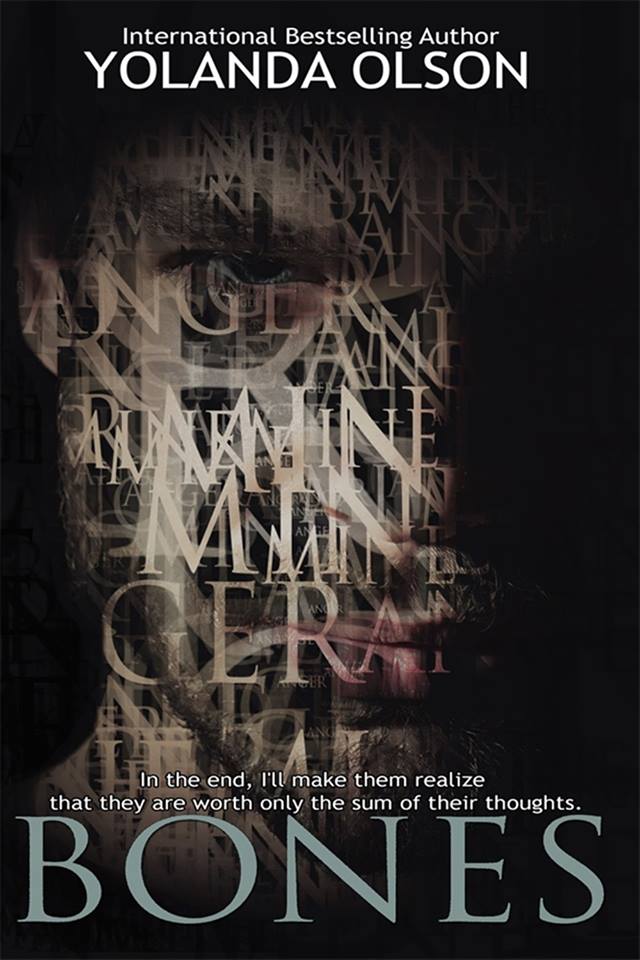
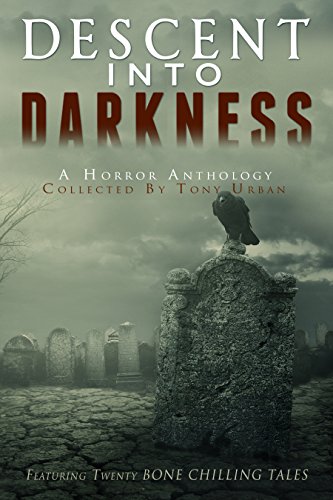
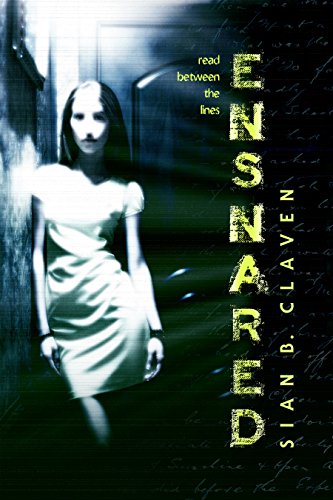
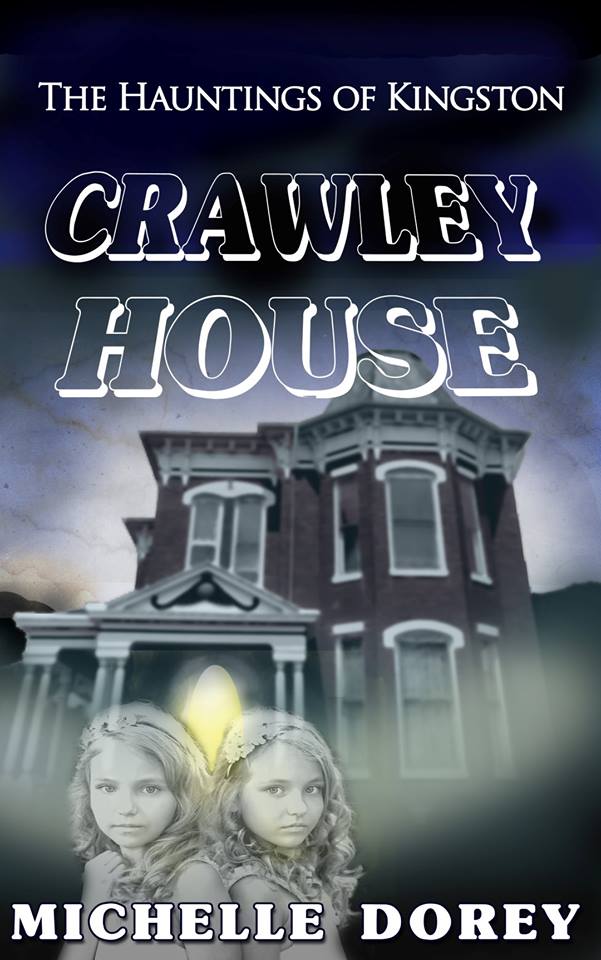
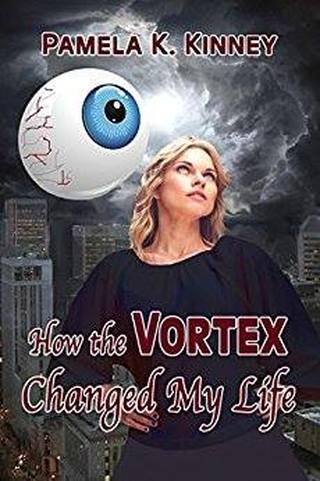
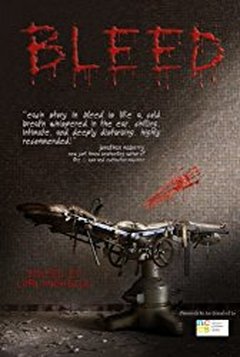
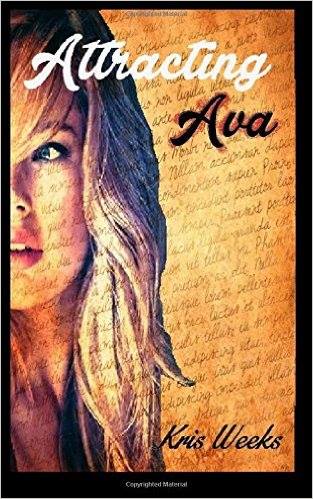
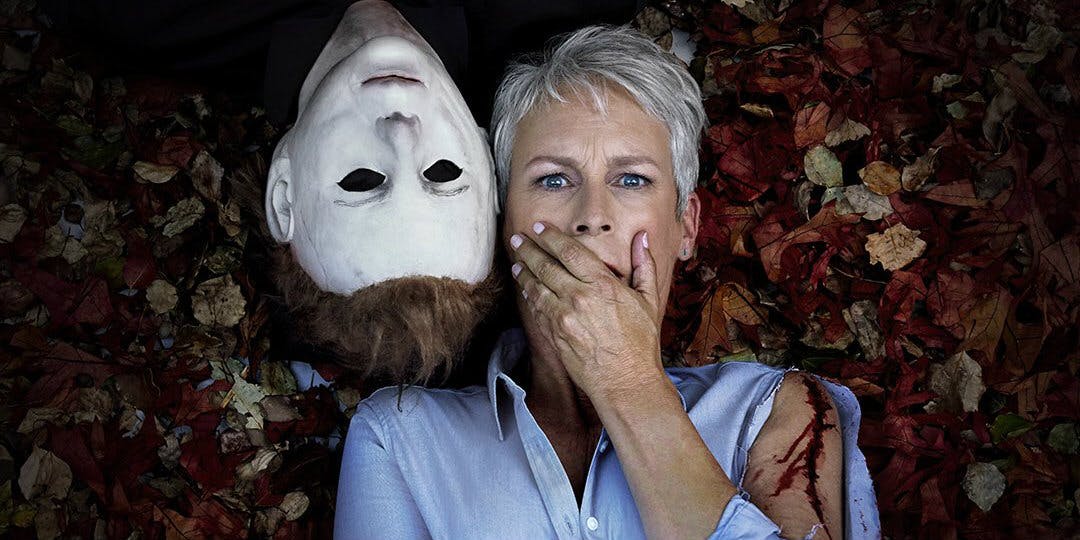
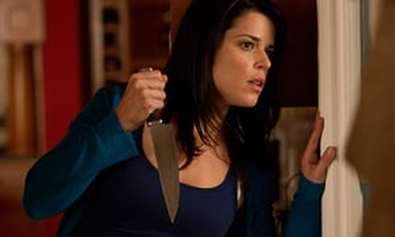
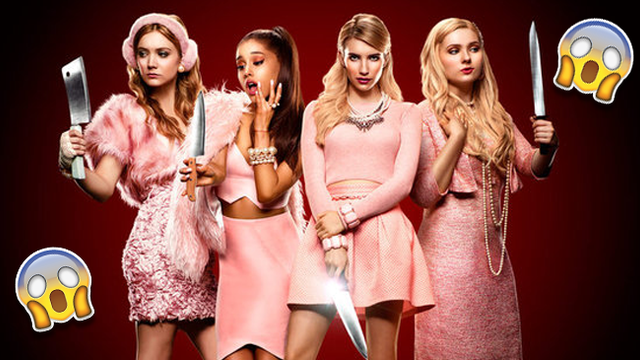
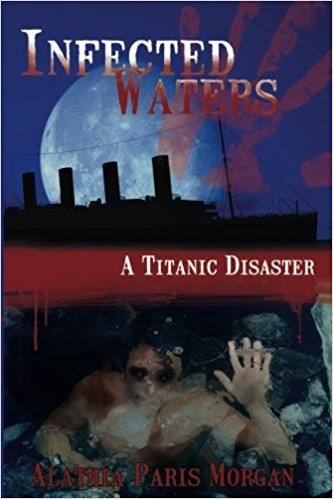
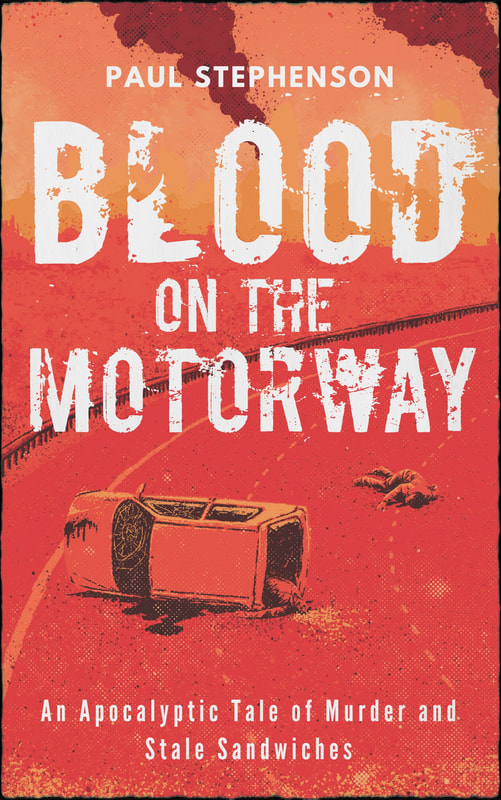


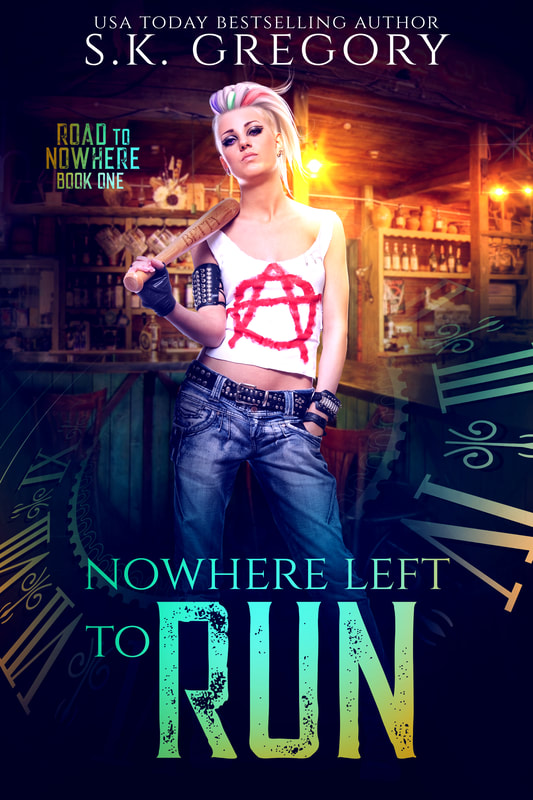

 RSS Feed
RSS Feed
